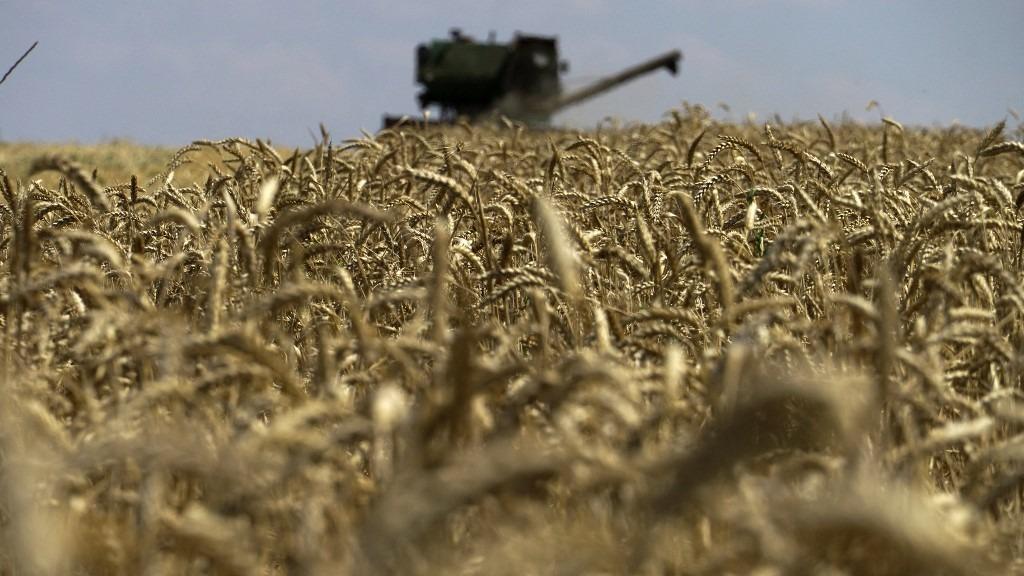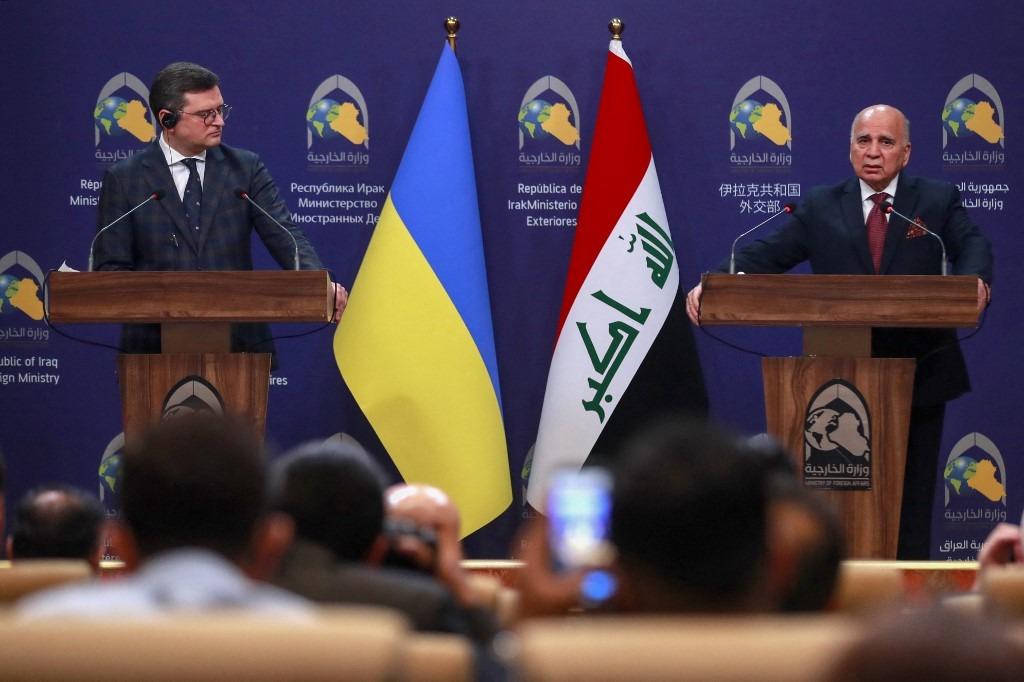 This file photo taken on July 31, 2022 shows a grain combine harvester collecting wheat near Novoazovsk, Ukraine. (PHOTO/AFP)
This file photo taken on July 31, 2022 shows a grain combine harvester collecting wheat near Novoazovsk, Ukraine. (PHOTO/AFP)
BRATISLAVA/BAGHDAD/KYIV - The Slovakian government suspended imports of grain and other agricultural commodities from its neighbor Ukraine on Monday, but kept transit to third countries open, said interim Agriculture Minister Samuel Vlcan.
The decision was made during the government's online meeting, after the recent discovery that 1,500 tons of grain imported from Ukraine had potentially been contaminated by pesticides.
The ban will be effective as of April 19.
Slovakia's head of the State Veterinary and Food Administration Jozef Bires said his office was checking all imported food and feed from Ukraine that could have been contaminated
Vlcan said the measure would protect the Slovakian agriculture and food sectors, and especially the health of consumers.
The head of the State Veterinary and Food Administration Jozef Bires said at the briefing that his office was checking all imported food and feed from Ukraine that could have been contaminated.
Vlcan noted that no contaminated flour had been produced at the affected mill, since the 1,500 tons of potentially contaminated grain had been immediately locked down.
Aside from concerns over contamination, analysts say that it is difficult for Slovakian farmers to compete against the low price of grain from Ukraine.
Ukraine's two other neighboring countries, Poland and Hungary, declared a similar ban over the weekend. This has displeased the European Commission, which reserves the right to determine pan-European business strategies.
ALSO READ: Ukraine seeks re-opening of grain transit via Poland as 'first step'
 Iraq's Foreign Minister Fuad Hussein (right) and his Ukranian counterpart Dmytro Kuleba attend a joint press conference in Baghdad on April 17, 2023. (PHOTO / AFP)
Iraq's Foreign Minister Fuad Hussein (right) and his Ukranian counterpart Dmytro Kuleba attend a joint press conference in Baghdad on April 17, 2023. (PHOTO / AFP)
Wider Iraq-Ukraine cooperation
Meanwhile, Iraqi Prime Minister Mohammed Shia' al-Sudani emphasized his country's openness to expanding cooperation with Ukraine, calling for settling international disputes by rejecting wars and adopting dialogue.
Iraq and Ukraine discussed ways to enhance trade and economic exchange, according to a statement released by the media office of the Iraqi Prime Minister, adding that Iraqi Prime Minister Mohammed Shia' al-Sudani reiterated the country's stance in resolving international and regional problems and disputes by rejecting wars and adopting dialogue
Al-Sudani made the remarks during a meeting with visiting Ukrainian Foreign Minister Dmytro Kuleba in the Iraqi capital of Baghdad, according to a statement released by the media office of the Iraqi Prime Minister.
The two sides discussed ways to enhance trade and economic exchange between Iraq and Ukraine, according to the statement, adding that al-Sudani reiterated Iraq's stance in resolving international and regional problems and disputes by rejecting wars and adopting dialogue.
For his part, Kuleba stressed his country's willingness to cooperate with Iraq and expressed the Ukrainian government's appreciation of Iraq's "pivotal role in supporting international stability efforts and peace initiatives."
Earlier on Monday, Iraqi Foreign Minister Fuad Hussein called for a ceasefire between Russia and Ukraine during a press conference with Kuleba, noting that "Iraq seeks to be part of the solution" regarding the Russia-Ukraine conflict, the state-run Iraqi News Agency reported.
ALSO READ: Ukraine to 'join EU internal market before full membership'
Financial aid
Separately, Sergiy Nikolaychuk, the deputy chairman of the National Bank of Ukraine (NBU), said that Ukraine plans to attract $42 billion in financial aid this year, the NBU said on Facebook Monday.
In particular, Ukraine is counting on receiving about $4.6 billion from the International Monetary Fund (IMF), Nikolaychuk said after his visit to the United States, where he met with IMF officials.
"The financial support of our partners is very important in this challenging time for Ukraine," Nikolaychuk stressed.
The situation in the Ukrainian economy this year has improved compared with that of 2022, the official noted.
Last month, the IMF approved a 48-month extended arrangement for Ukraine worth about $15.6 billion.
READ MORE: NATO mulls multi-year support program for Ukraine
Earlier this month, Ukrainian Prime Minister Denys Shmyhal said his government hopes to receive $115 billion in long-term support from partners.


